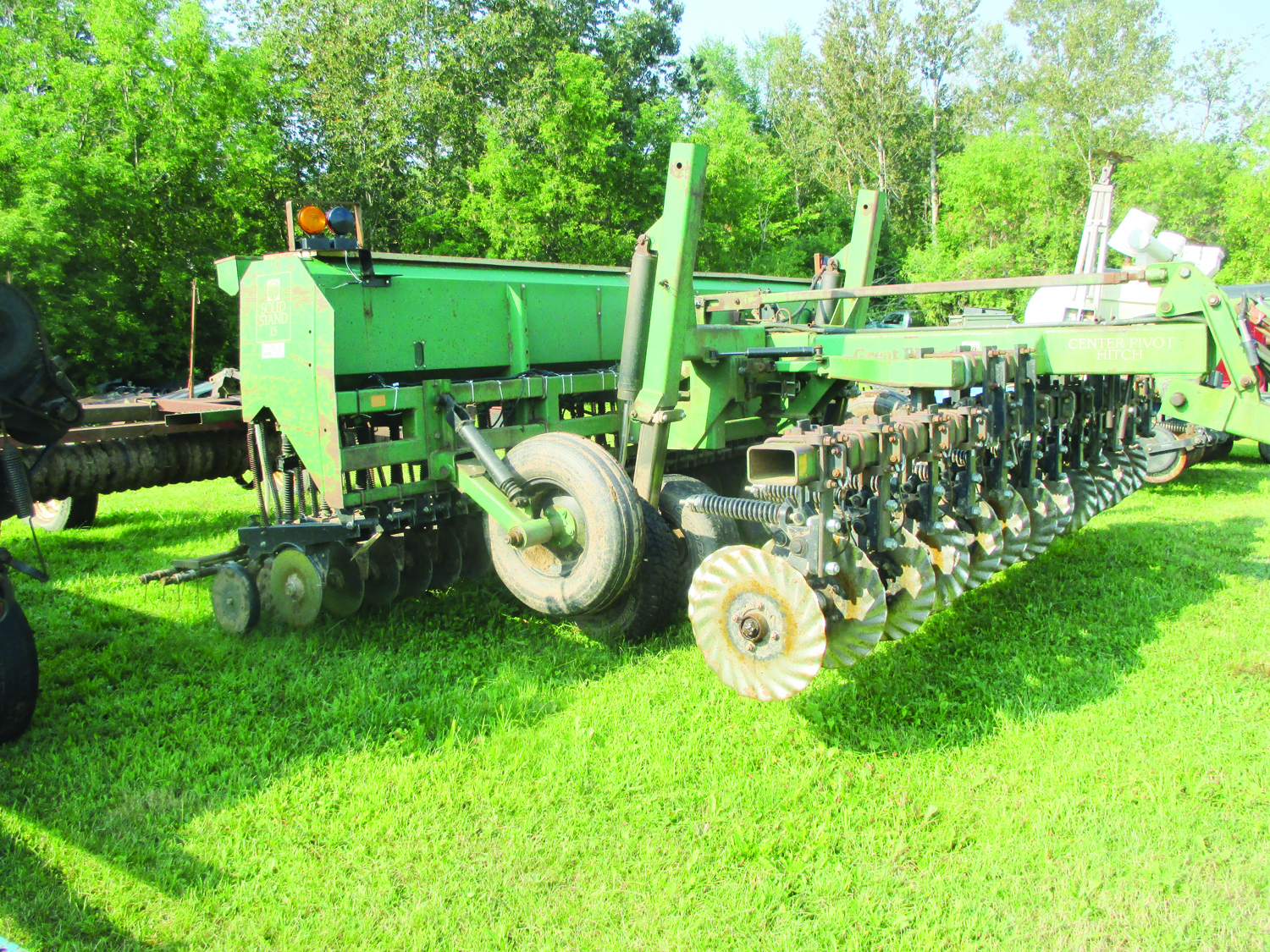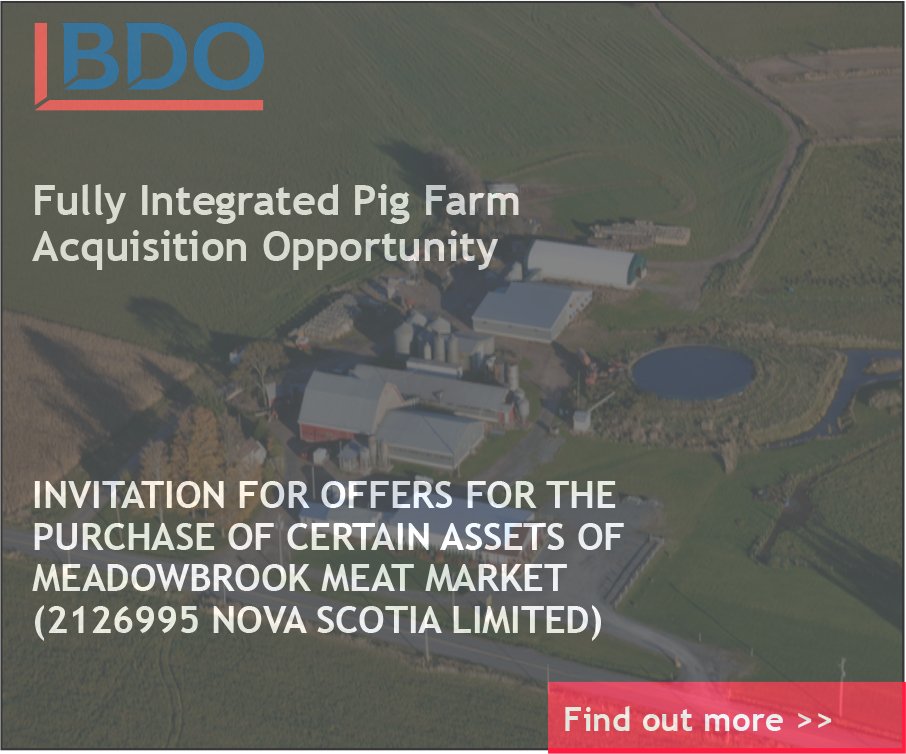N.B. producer gobsmacked by farm of the year award
/Kier Miller of Miller Farms in Sussex Corner, N.B., is pictured here in a cornfield. The New Brunswick Soil and Crop Improvement Association has named Miller Farms the province’s 2017 farm of the year. (Submitted photos)
Miller Farms includes Kier and Joan Miller, pictured here, and their three grown children.
Miller Farms’ corn planter was manufactured specially for no-till farming.
by Joan LeBlanc
Miller Farms’ no-till grain drill has coulters that place the grain seed in narrow strips of soil.
Kier Miller of Sussex Corner, N.B., said he was “speechless” when he found out the New Brunswick Soil and Crop Improvement Association had named his operation the province’s 2017 farm of the year.
“I couldn’t put coherent thoughts together at the time,” he said. “I thought the judges had messed up. I’d seen the list of the other nominees and knew four of the other farms. And I thought there wasn’t a chance that we’d get this at all, not even a small chance.”
Miller Farms includes Kier and Joan Miller and their three grown children, daughters Amy and Tina, and son Jayme. Kier Miller does most of the daily work, with help from his son and a hired man when needed. The farm comprises 23 acres, nine of which are cleared, with the remainder in woodland. They also lease 180 acres. On top of that, the Millers do custom planting of corn, soybeans, wheat, oats, and barley for other area farmers each year totalling about 1,200-1,500 acres. In the fall, they do about 1,500 acres of combining for others, although not necessarily the same crops they planted.
Miller said he believes it’s his farming practices that sealed the deal for the provincial judges.
“Our farm is 100 percent no-till,” he said. “We don’t do any plowing or harrowing – and we’ve been doing it that way for 14 or 15 years now. We grow corn, soybeans, wheat, oats, barley, edible yellow peas, and about 20 acres of forage. The ultimate intended market for the yellow peas is India.”
The farm’s corn planter and grain drill were built specially for no-till farming.
“You see, whatever crop you’re seeding, you’re actually just seeding a narrow strip,” said Miller. “So both pieces of equipment have coulters that place seeds in just that narrow strip of land. Doing no-till planting doesn’t disturb the ecosystem that is under the ground. All the bacteria and fungi and earthworms and all of the other organisms that live in the soil, they harvest all of the crop residue that’s left on the surface and make the nutrients in that available to the new crop.”
Miller said he heard about the no-till method when he attended a Soil Conservation Council of Canada conference in Ontario about 15 years ago.
“I thought it might be a good idea,” said Miller, who’s a member of the council. “I’m lazy, so I thought there would be a lot less work involved and it would take less fuel. And it does. I was told to expect lower yields for the first three to four years as the soil adapted to the new method, but I didn’t see that at all. Since I started, I’ve pretty much had the same yields as when I tilled.”
Miller has an environmental farm plan and still uses commercial fertilizers within his nutrient management plan, but in that he also does things a bit differently than some other producers. “I say that I like to spoon-feed my plants – give them a little bit now and a little bit later on instead of a big dump all at once,” he said. “I think that makes a big difference too.”
He also leaves buffer zones along water courses and uses no-till and cover crops for erosion control.
Miller said it’s important to keep up with agriculture technology and information, and the local soil and crop improvement association is a good outlet for both. “It’s good to share information, and the association provides a network both locally and provincially for that,” he said.
Miller has been a member of the New Brunswick Soil and Crop Improvement Association for 30 years, and is currently treasurer of the Soil Conservation Council of Canada, and a director with the Agricultural Alliance of New Brunswick and the Atlantic Grains Council. He is also a dealer for Pioneer Canada (seed) and Brookville Manufacturing (lime).














